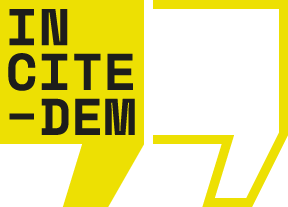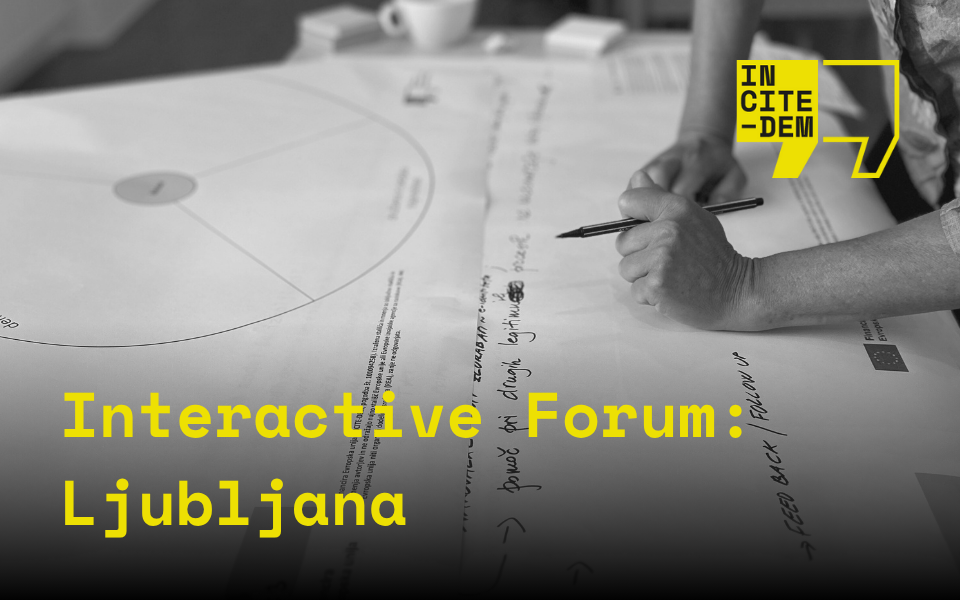On Wednesday, September 17, the Incite-Dem Interactive Forum took place in Ljubljana. Organized by Focus, the event brought together 12 decision-makers, public servants, and experts from various levels, ranging from representatives of the National Assembly and state administration to representatives of the European Commission in Slovenia.
The purpose of the forum was to assess the feasibility, adaptability, and impact of six models of democratic innovation co-created by citizens across Europe. It was one of nine such forums organized across Europe in 2025 with the aim of involving institutional actors in a reflection on how civic models could be integrated into existing administrative and political structures – and what adjustments would be necessary to achieve this.
The discussions were dynamic, conducted in an open and constructive spirit, with great engagement on the part of the participants. They took a serious approach to evaluating the proposed models, while also highlighting a number of opportunities and limitations in the Slovenian context. The focus was on jointly seeking solutions that could contribute to more inclusive forms of decision-making.
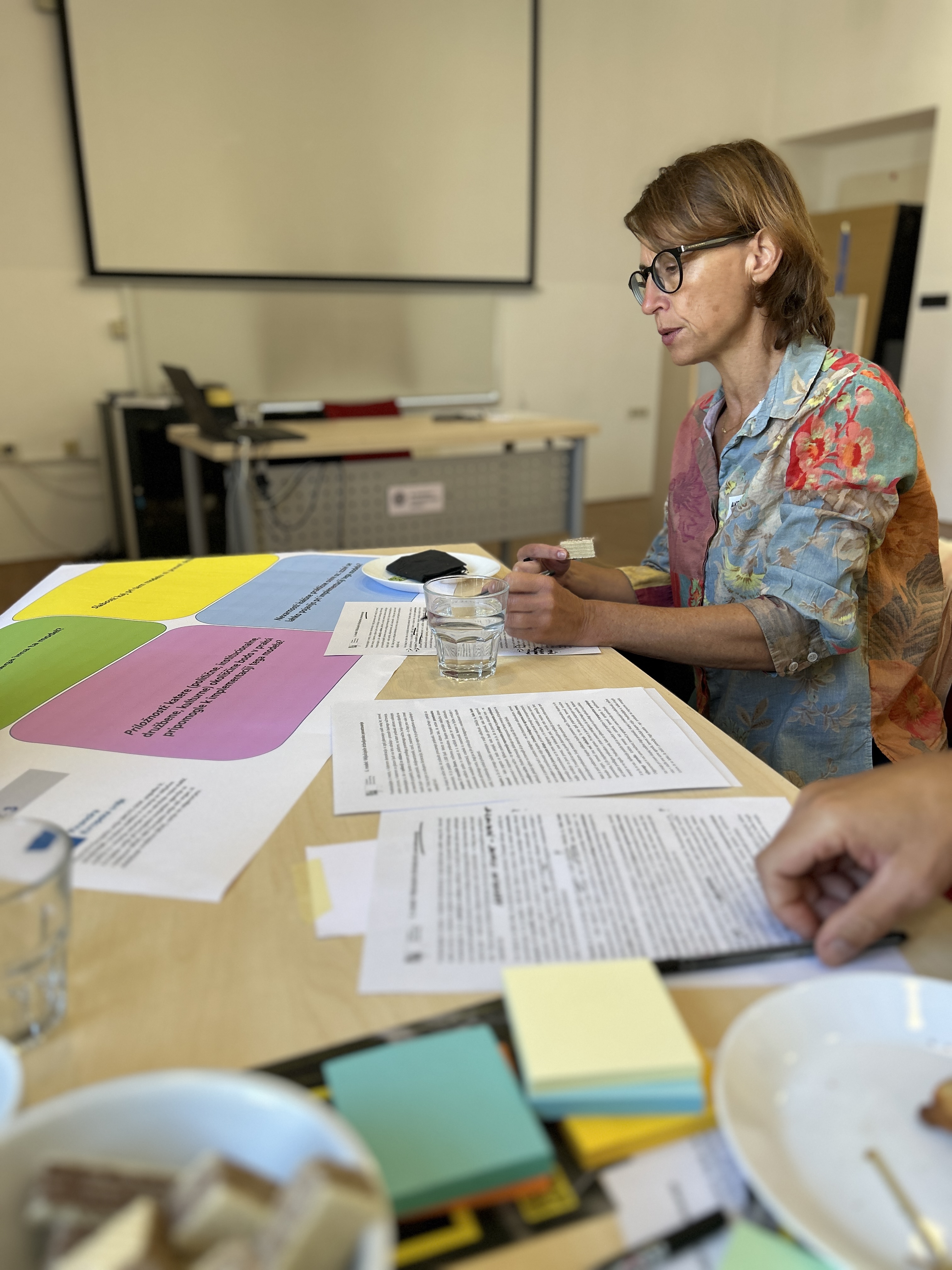
Six models for the future of democracy
The discussions were dynamic and in-depth. Participants seriously assessed the proposed models, while also highlighting numerous opportunities and limitations in the national context.
1. Neighbourhood House
The proposal for a physical space for regular meetings, cooperation, and co-decision-making by residents was met with skepticism. Participants expressed doubts about the possibility of such diverse and often conflicting interests coexisting in one common space.
Instead, they emphasized the importance of accessible public infrastructure, such as libraries, gyms, and childcare facilities, which already respond to community needs and create conditions for cooperation.
2. Permanent Citizen Assembly
This is a model that would allow citizens to participate directly in decision-making, rather than just electing representatives every few years.
Participants discussed how such an assembly could be integrated into the parliamentary system and how to reconcile different levels of decision-making. The principle of subsidiarity is important, but in certain cases (e.g., protected forests), the state must nevertheless intervene in local decisions.
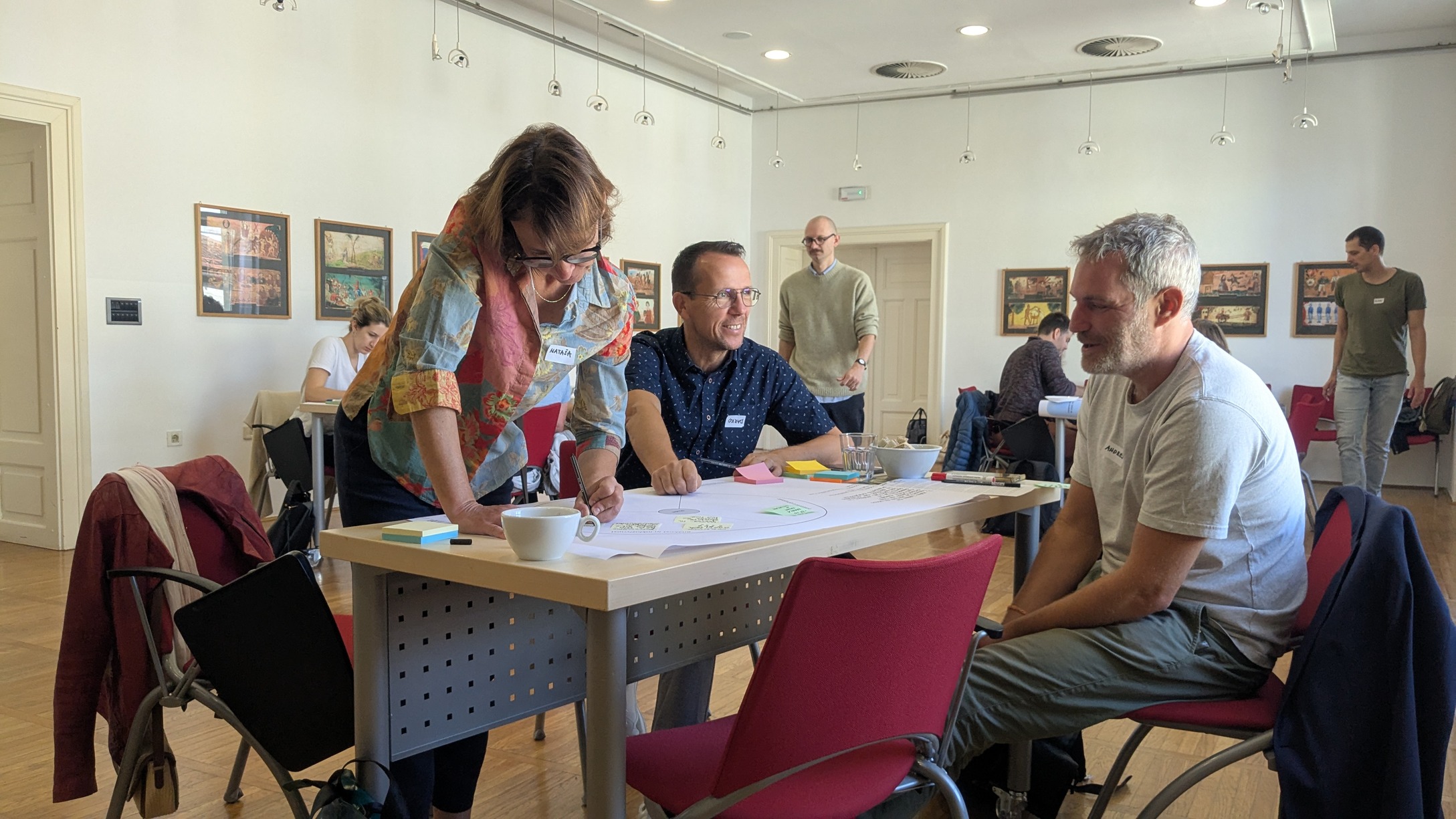
3. Participation Navigation App
Digitalization is the future, but participants expressed concern that it does not strengthen democracy, often quite the opposite. Participants pointed to dangers such as data misuse (e.g., the Cambridge Analytica case), hate speech, and the digital exclusion of older or less digitally literate groups.
Digital tools could be a useful addition, but only with clear rules, safeguards, and access for all.
4. Democracy Laboratories
According to participants, this model has great potential for strengthening democratic decision-making, especially for direct democracy. Democracy laboratories in schools, libraries, or cultural centers could become spaces for learning, testing, and implementing new forms of participation.
Participants pointed out the importance of existing democratic procedures that are not working: the case where the Slovenian parliament did not implement the referendum decision on preferential voting was highlighted as an example that undermines trust in democratic decision-making.
The need to involve both young people (learning democracy from school onwards) and older people in democratic processes was also emphasized.
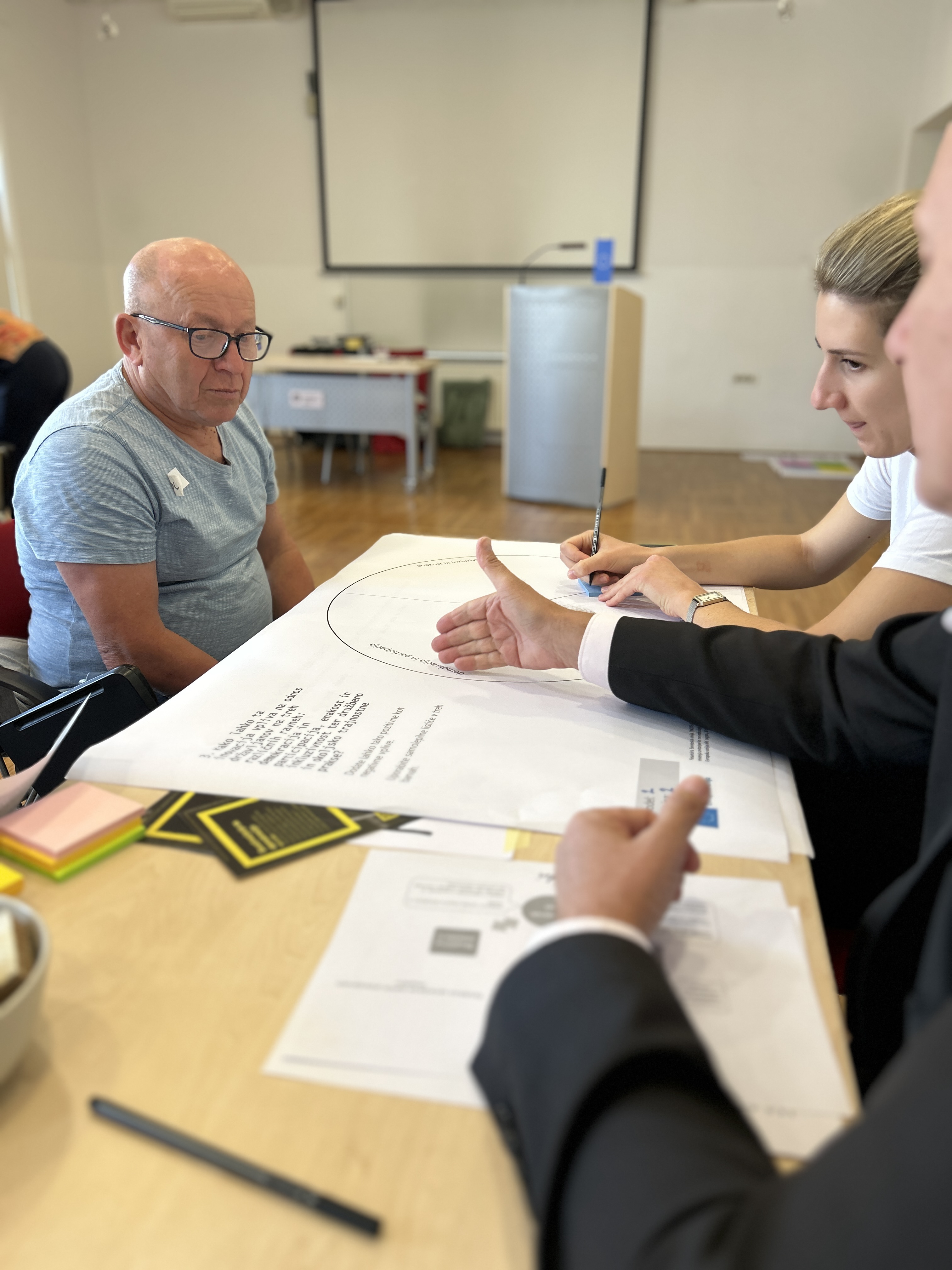
5. Democracy Allowance
The proposed model envisages a few days per year that citizens could legally use to participate in democratic activities. Although the idea seems like a remarkable achievement, participants pointed out a number of implementation obstacles: from negative reactions from employers to the question of how to apply such a measure to the self-employed, pensioners, and schoolchildren.
Nevertheless, a proposal was put forward to dedicate at least two days a year (e.g., on National Day and Independence Day) to democratic participation. An additional day for democracy would enable more group formation and greater pressure or control over politicians, which, according to the participants, would raise the level of their performance. There were also opinions that learning about democratic participation was needed, which could be organized on one of these days.
6. Inclusive Citizen Consultation
It is important to limit this to the local level, as this type of decision-making is most likely to attract people’s participation. Local advisory groups could limit the excessive power of political officials (e.g., mayors), provided that they are established transparently and have clearly defined powers and operating protocols.
Important questions included: how to ensure representativeness, what is the role of experts, and what content is appropriate for this type of decision-making. Smaller municipalities may face greater organizational challenges in this regard.
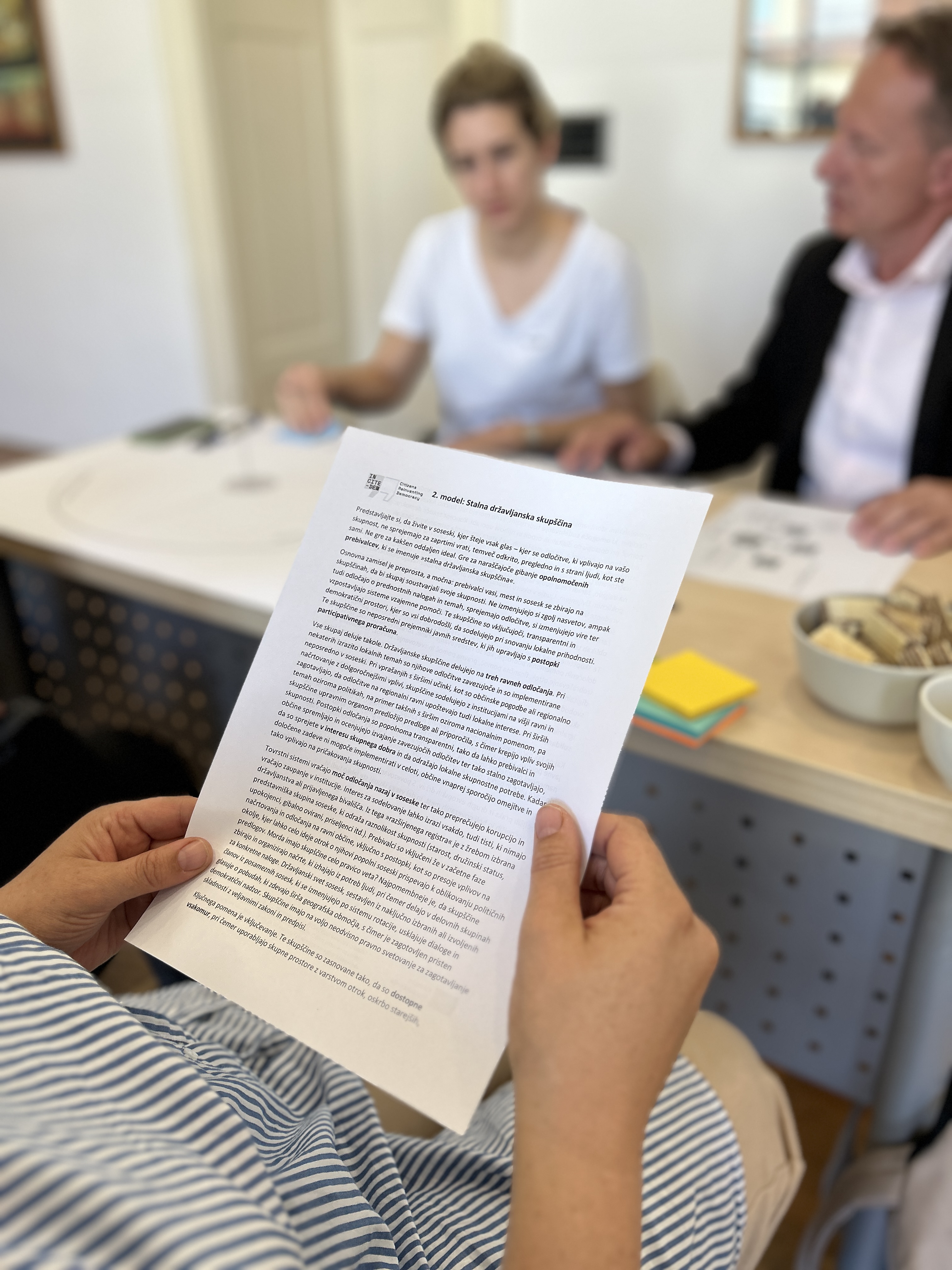
European context: European Commission citizens’ panels
A representative of the European Commission in Slovenia presented the European practice of Citizens’ Panels, which are being developed following the example of Barcelona. The panels reflect the population of the Member States, which discuss important topics (e.g., reducing food waste). They draw up recommendations, which are considered by an expert group, and the final document—the citizens’ report—is considered by the College of Commissioners.
Although the procedures in the European Parliament and the Council of the EU have stalled, the European Commission continues to implement these panels as a way of involving citizens in policy-making.
Between creativity and caution
The forum revealed a high level of awareness of the erosion of democratic mechanisms or the democratic deficit, which is evident at various levels of decision-making, from local to European. Participants thought creatively, but also realistically.
On the one hand, they expressed support for greater participation and the renewal of democratic practices, while on the other hand, they pointed out that decision-making centers are often distant from the people – even from the sovereignty that is tied to the framework of the state.
However, an event such as this proves that there is a willingness to seek a way forward.
The findings gathered in Ljubljana will contribute to the broader efforts of the INCITE-DEM project to refine citizen-designed democratic innovations and prepare recommendations for their integration into political and institutional processes across Europe.
